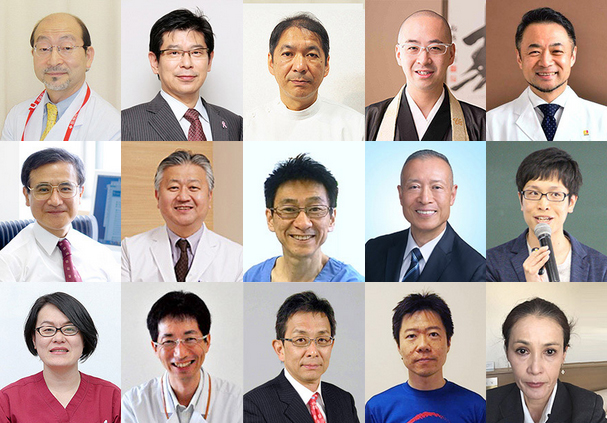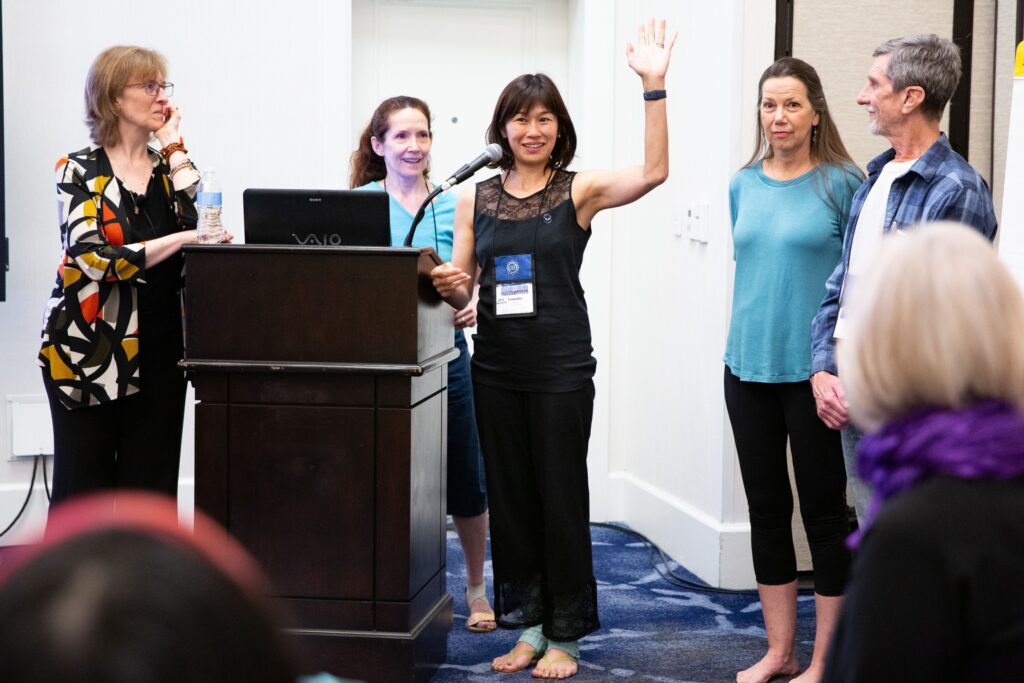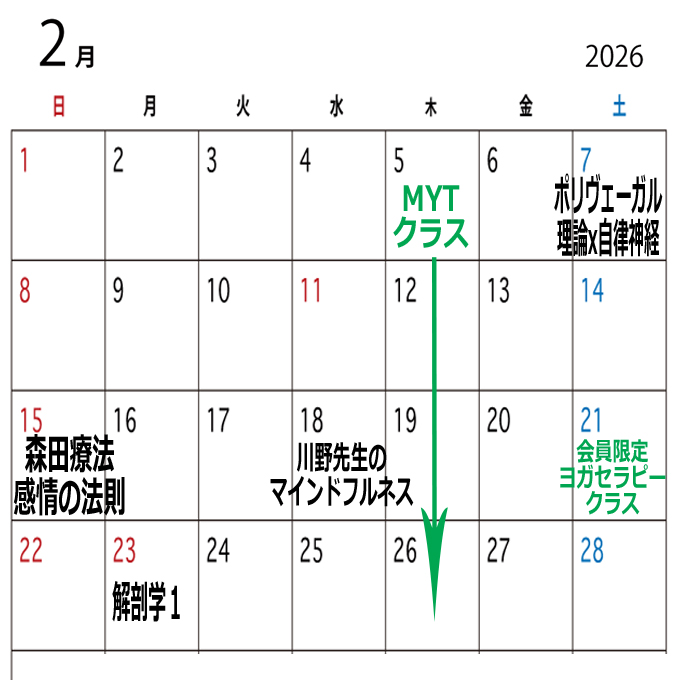Yoga Medical Society in Japan(YMSJ)
The mission of Yoga Medical Society in Japan is to improve the wellness of people by promoting and providing evidence based yogatherapy. We are also committed to delivering high-quality education for all students who come to learn yogatherapy.

The Yoga Medical Society in Japan is an accredited IAYT organization and the only member school of IAYT in Japan. Our two faculties, Tomko Okabe and Yumiko Muramatsu Hoban are IAYT-certified yoga therapists (C-IAYT).


Website: http://www.yoga-medical.org
For inquiries, contact editor@yoga-medical.org
Yoga Therapy is happening in Japan
Our report published in “Yogatherapy Today” Spring 2020 issue.
In Japan most people start yoga for exercise and weight loss. Yoga is not yet perceived as a healing art, much less an alternative or complementary medicine.
However, prenatal and postnatal yoga is very popular, along with yoga for children with developmental disabilities and visually impaired adults. As Japan has entered the super-aging society, senior-yoga is also rapidly gaining recognition.
Additionally, yoga for breast cancer patients (run by BCY Institute Japan), is steadily spreading nationwide with 65 locations offering regular classes.
According to Eriko Hata of BCY, there are two recognized yoga therapy trends. The first is hospital-based, volunteer yoga therapy patient and patient support groups. When doctors see QOL improvements and their patients recovering, yoga classes get approved as an official recreation for patients, and also the hospital staff.
The other trend is patients finding a local yoga therapy class via the internet, word of mouth, flyers, etc. They start yoga as a complementary rehabilitation to their standard western medicine treatment and find it physically and mentally helpful. In one class that I observed, the instructor set up a teatime after yoga, and people of various ages chatted, shared information, and encouraged one other.
Approximately half of the participants who study yoga-therapy at The Yoga Medical Society In Japan (YMSJ https://yoga-medical.org/) have family members who need care. Encouragingly, the other half are medical professionals.
YMSJ is currently investing in the development of yoga-therapy instructors and instructional materials.
Although the medical profession in general is conservative, we are optimistic that yoga-therapy will grow as a grassroots movement. As people who suffer illness, and their caregivers at medical institutions, experience the power of yoga as a therapy, and share their experiences with others, we believe that yoga-therapy will be recognized as a valid complementary medicine in Japan.
Reporting and writing by Yumiko Muramatsu Hoban

